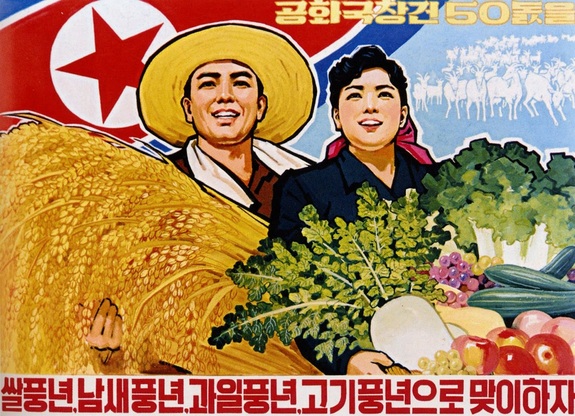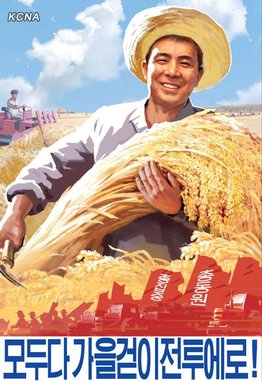The Arduous March
고난의 행군
"Article 25:
(1) Everyone has the right to a standard of living adequate for the health and well-being of himself and of his family, including food, clothing, housing and medical care and necessary social services, and the right to security in the event of unemployment, sickness, disability, widowhood, old age or other lack of livelihood in circumstances beyond his control."
- Universal Declaration of Human Rights
(1) Everyone has the right to a standard of living adequate for the health and well-being of himself and of his family, including food, clothing, housing and medical care and necessary social services, and the right to security in the event of unemployment, sickness, disability, widowhood, old age or other lack of livelihood in circumstances beyond his control."
- Universal Declaration of Human Rights
|
The Arduous March was a period in North Korea’s history where the effectiveness of Juche was tested. When the USSR began demanding market prices for their aid being sent to North Korea, North Korea experienced an immediate economic falter and ultimately widespread famine in the 1990s. During the early 1990s, famine plagued Korea and its citizens; but Juche proved strong enough to quell citizen revolt.
|
|
Mrs. Song-yon on the Arduous March. A State of Mind
"I fall on the strict humanitarian end, which basically says these obligations [to provide food aid] are humanitarian and they shouldn’t be linked. But there are those, including North Korean refugees, that the community, the international community can just cut North Korea off, and the argument is that is what will either facilitate changes of policy or even regime change in the country but I just don’t see the ethical logic of that."
- Stephan Haggard, Lawrence and Sallye Krause Professor of Korea-Pacific Studies, UCSD |
“I personally know about fifteen people who died of hunger. In the case of an acquaintance of mine, her entire family died. There were so many deaths; we got used to seeing dead bodies everywhere – at train stations, on the streets. The year 1997 was the worst, and then things got better, because everyone began selling stuff at markets. That’s how we all survived.”
– Ms. Kim, escapee from North Korea, 2005 |
|
"Severe acute malnutrition over a long period of time leads to stunting...and the North Korean army dropped to four foot seven, four feet seven inches, are the minimum height requirement for an eighteen year old North Korean boy to enter the military...that’s an indication that they are having trouble recruiting because of mass levels of stunting."
- Andrew Natsios, testifying before the UN Commission of Inquiry on Human Rights in the DPRK - Washington Public Hearing 31 October |
It is clear that there’s a kind of—that the planning system, really hasn’t worked very well...there’s a lot of stuff going on on the ground. And there are two reasons why you do have some market activity on the ground. One is: people are desperate. The planned food distribution—now you see, they never had this in China. In China you had ration tickets. But people could always get some food from private plots and things like that. But in North Korea, you’re supposed to depend entirely on the planned food distribution.
-Susan Shirk, Ho Miu Lam Professor of China and Pacific Relations |


